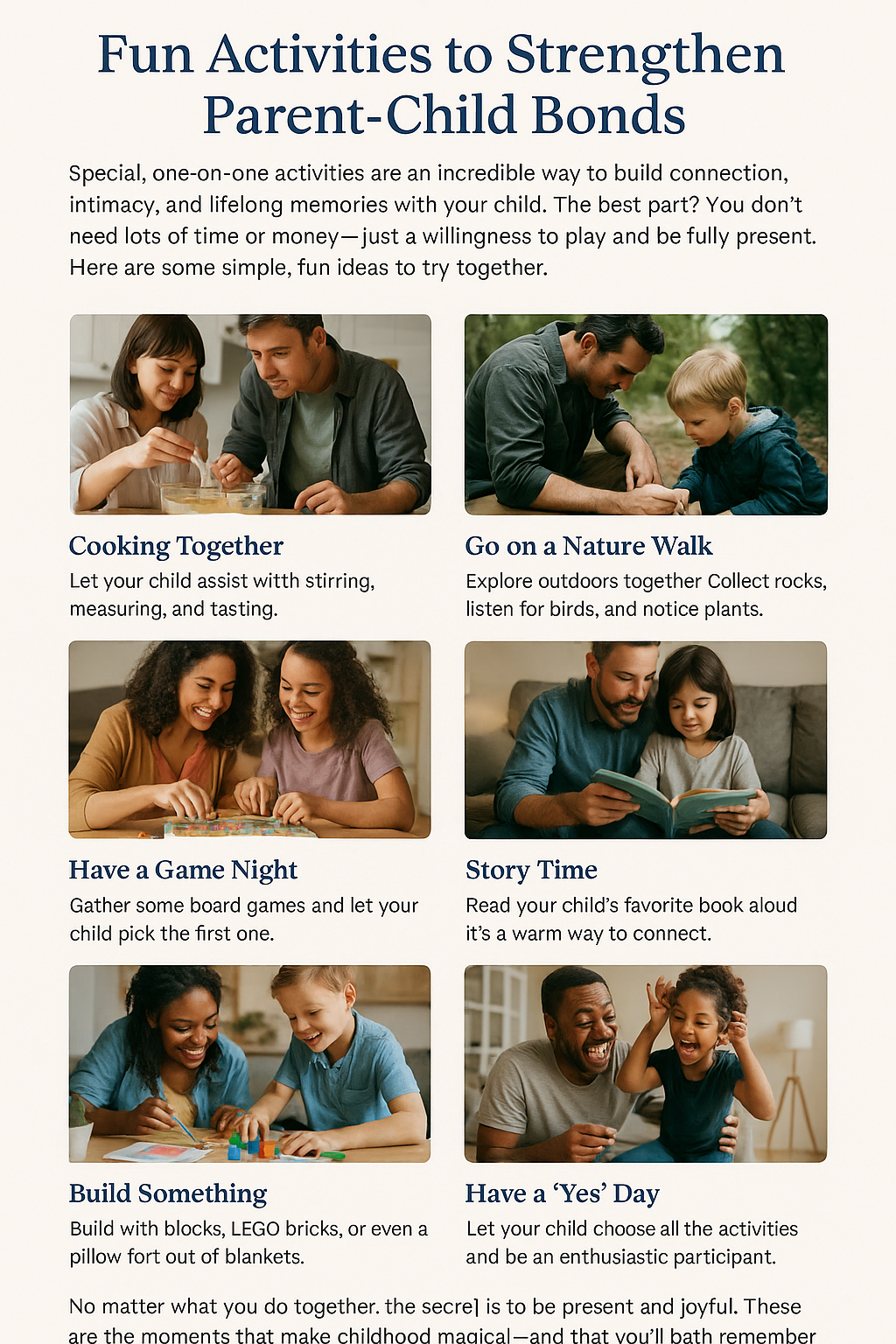Helping children become independent is one of the most empowering gifts a parent or caregiver can offer. It’s not about pushing them to grow up too fast—it’s about teaching them, step by step, that they are capable, trusted, and ready to contribute to their own lives.
Fostering independence builds confidence, resilience, and a sense of responsibility. In this article, we’ll explore practical ways to nurture independence in your child, starting from the earliest years.
Why Independence Matters
Independence in childhood lays the foundation for:
- Problem-solving and decision-making skills
- Self-confidence and self-esteem
- Emotional regulation
- A sense of purpose and responsibility
Independent children feel more capable in the world—and this confidence supports every stage of development.
Start Early and Keep It Simple
Independence begins in small, everyday actions. Even toddlers can begin learning to:
- Feed themselves
- Put away toys
- Wash their hands
- Choose clothes from two options
The key is to start with age-appropriate tasks and offer gentle encouragement.
Offer Choices to Build Decision-Making Skills
Letting children make simple choices helps them learn how to weigh options and trust their judgment.
Start with small decisions:
- “Do you want to wear the red shirt or the blue one?”
- “Would you like apple slices or banana?”
Giving choices within limits teaches independence without overwhelming them.
Allow Time for Them to Try (and Struggle)
Learning new skills takes time—and patience. Resist the urge to jump in immediately when things aren’t perfect.
For example:
- Let your child button their coat, even if it takes five minutes.
- Encourage them to pour water, even if they spill a little.
Mistakes are part of learning. Celebrate effort over perfection.
Create a Child-Friendly Environment
Children can only be independent if their surroundings allow it. Set up your home so they can do things on their own.
Ideas:
- Place hooks at their height for coats and backpacks
- Use low shelves for books and toys
- Label bins with pictures for easy cleanup
- Keep a stool in the bathroom for teeth brushing
A supportive setup promotes confidence and reduces dependence on adult help.
Establish Predictable Routines
Routines give children the confidence to act without being told what to do every time. When routines are consistent, children naturally begin to take charge.
Try:
- A morning routine chart (wake up, get dressed, brush teeth)
- A bedtime routine (bath, pajamas, book)
With time, your child will follow the flow without reminders.
Involve Them in Daily Tasks
Chores are powerful tools for building independence. When children help around the house, they feel useful and connected.
Examples by age:
Toddlers (2–3 years):
- Put laundry in basket
- Throw away trash
- Wipe spills
Preschoolers (4–5 years):
- Set the table
- Feed pets
- Fold towels
School-age (6–8 years):
- Pack lunch
- Organize their room
- Help cook simple meals
Let them take pride in their contribution.
Encourage Problem-Solving
When your child encounters a challenge, resist solving it immediately. Instead, guide them through it:
- “What do you think we should do?”
- “Let’s figure it out together.”
Problem-solving builds critical thinking and emotional resilience. Even small dilemmas—like fixing a stuck zipper—are opportunities to grow.
Celebrate Effort, Not Just Results
Focus your praise on the process, not just the outcome:
- “You worked so hard to zip your jacket—great job sticking with it!”
- “I love how you figured out how to make your snack all by yourself.”
This reinforces a growth mindset and encourages persistence.
Teach Self-Care and Responsibility
Start introducing simple self-care tasks that your child can manage:
- Brushing teeth and hair
- Choosing clothes
- Tidying their space
- Remembering their water bottle or backpack
Use gentle reminders at first, then gradually step back.
Be Patient and Trust the Process
Independence takes time, and children will have setbacks. Be supportive, not critical, when things go wrong.
- If they forget something, help them troubleshoot.
- If they make a mess, let them clean it with you.
The goal isn’t to raise a “perfectly independent” child, but one who feels capable, supported, and trusted.
Final Thoughts: Independence Is a Journey
Fostering independence doesn’t mean stepping away—it means stepping back, so your child can step forward. It’s about building trust, creating space to grow, and encouraging small acts of courage every day.
Whether your child is learning to tie their shoes or pack their lunch, each milestone of independence is a powerful moment. Celebrate it, support it, and watch your child blossom into someone who believes in their own strength.
